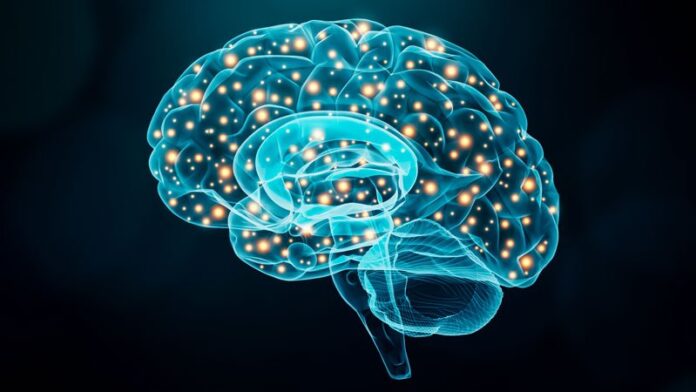[ad_1]
High-frequency electrical stimulation, personalized to the activity pattern of brain networks that control reward, may reduce obsessive-compulsive behaviors, new research suggests.
In the study, high-definition transcranial alternating current stimulation (HD-tACS) personalized to the intrinsic beta-gamma frequency of the reward network was associated with lessened obsessive-compulsive behaviors. Participants with the most severe symptoms showed the greatest benefits.
“This result is promising, as it suggests that neuromodulation may be helpful in severe and distressing clinical conditions, such as obsessive-compulsive disorder and substance use disorder,” lead investigator Robert Reinhart, PhD, Center for Systems Neuroscience, Boston University, Boston, Massachusetts, told Medscape Medical News
The findings were published online January 18 in Nature Medicine.
Table of Contents
Rapid and Robust Relief
An emerging perspective is that obsessive-compulsive behaviors result from maladaptive habit learning, which may be associated with abnormal beta-gamma neurophysiology of orbitofrontal cortex (OFC) circuitry during reward processing.
In two experiments, the researchers used HD-tACS to establish the functional contribution of OFC beta-gamma rhythms in reward learning and examined its potential in normalizing obsessive-compulsive behaviors.
In the first experiment, which included 60 volunteers, they demonstrated that targeting the OFC with HD-tACS personalized to the intrinsic beta-gamma frequency of the reward network led to “rapid” modulation of reward behavior and learning.
“This observation may help advance our understanding of the brain processes that give rise to obsessive-compulsive behaviors,” Reinhart said.
The second experiment involved 64 individuals with obsessive-compulsive symptoms in the subclinical and clinical range. In this group, beta-gamma modulation via application of HD-tACS for 30 minutes over 5 consecutive days “robustly” attenuated obsessive-compulsive behaviors for up to 3 months.
On average, total scores on the Obsessive-Compulsive Inventory–Revised, the most commonly used self-report scale in obsessive-compulsive disorder (OCD) research, were lower by nearly 28% over 3 months. The greatest benefits were observed in those with more severe symptoms.
“Personalization is increasingly recognized as an important factor for improving the effectiveness of neuromodulation. We propose a way to personalize neuromodulation for obsessive-compulsive behaviors according to the brain activity patterns of an individual as they learn from rewards,” Reinhart said.
He noted that that the investigators would eventually like to examine the potential efficacy of this approach for patients with other conditions, including gambling disorder, addiction, substance abuse, compulsive eating, and compulsive shopping and internet use.
“Additional research will be needed to better understand the mechanisms by which obsessive-compulsive behaviors are reduced using this approach and identify factors that can produce even stronger and longer-lasting improvements,” he added.
“Very Promising” Results
Commenting on the study for Medscape Medical News, Brittany LeMonda, PhD, senior neuropsychologist at Lenox Hill Hospital, New York City, said the findings are “very promising because we have limited treatments for severe OCD, so anything that we can add to the mix to help patients’ symptoms improve is great.
“What really stood out to me was that patients had symptom relief for about 3 months, and individuals with the most severe symptoms actually showed the most robust benefit, which is great because a lot of those patients are typically resistant to other treatment modalities,” said LeMonda, who was not involved with the research.
Patients with OCD often take medications that can cause adverse events, she added. Neuromodulation is noninvasive and has “not very many side effects, which is also important.
“We know that the frontal striatal system is implicated in OCD, so it makes sense from a science perspective that alteration of that system or interruption of that feedback loop could be helpful,” LeMonda said.
She also noted that Tourette’s syndrome, OCD, and attention-deficit/hyperactivity disorder are thought to to be associated with the same kind of disruption in the frontal striatal pathways.
“So we could potentially use this as a springboard to study other populations as well,” LeMonda concluded.
The study was funded by a grant from the National Institutes of Health and a gift from an individual philanthropist awarded to Reinhart. The investigators and LeMonda have reported no relevant financial relationships.
Nat Med. Published online January 18, 2021. Abstract
For more Medscape Psychiatry news, join us on Facebook and Twitter.
[ad_2]
Source link












